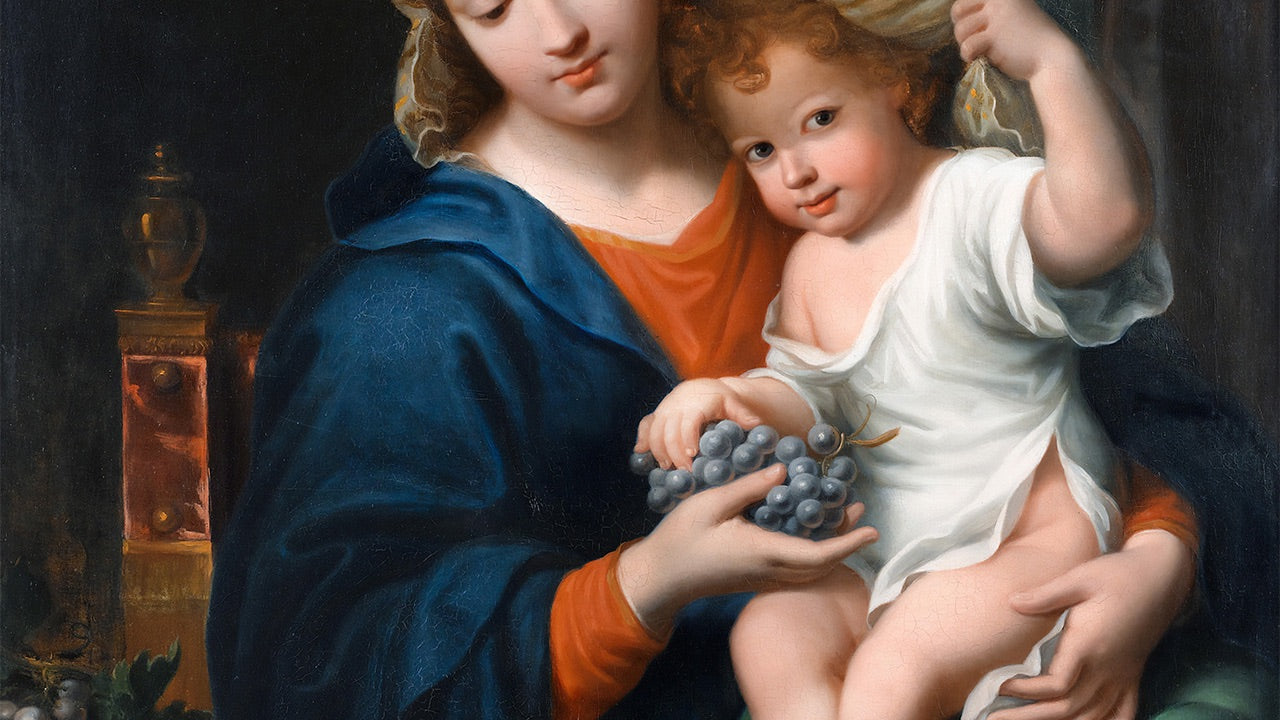Are you puzzled by varying opinions surrounding the practice of storing blessed grapes? Some Catholics treasure these blessed fruits, viewing them as God's provision during times of scarcity, while others dismiss it as superstition. In this post, we'll explore the historical roots of this practice and examine the Church's stance on the matter.
The Ancient Tradition of Blessing Grapes
Blessing grapes is a time-honored Catholic tradition, dating back to the early days of the Church. The blessing of fruits, including grapes, traces its origins to the Apostolic era. St. Hippolytus (c. 170– c. 235) mentions the blessing of grapes and other fruits, and St. Gregory of Nazianz (d. 389) called this practice a "just and holy" custom. Furthermore, the sixth Ecumenical Council in Constantinople (680-681) prescribed the blessing of new wheat and grapes on the feast of the Transfiguration.
This ritual echoes the Old Testament directive to present the first-fruits to God (Ex. 23:19), reminding us that God always provides for our needs. The Golden Legend (the most popular book of the Middle Ages, aside from the Bible) explains it this way:
"In some churches, on this day [the Feast of the Transfiguration], the Blood of Christ is consecrated from new wine—when new wine can be made and is available—or at least a ripe grape is squeezed into the chalice. Also on this day clusters of grapes are blessed. The reason for this is that the Lord, at the Last Supper, said to his disciples: ‘I shall not drink again of this fruit of the vine until that day when I drink it new with you in my Father’s kingdom.’ His transfiguration, and the new wine of which he spoke, represent Christ’s glorious renewal after his resurrection; and therefore it is on this feast of the transfiguration, which represents the resurrection, that new wine is called for."
You see, at the beginning of their exodus, the Jews were commanded by God to present the best of the first-fruits of their soil to Him (Ex. 23:19). The glorified body of Christ, which was manifested to us at the transfiguration, is the fulfillment of this ancient custom because it is the "first fruit" of the resurrection. This fruit opened the Kingdom of God for us, demonstrating that God continues to provide for us for all eternity. Therefore, grapes, representing the first fruits of the resurrection, are blessed as a testament to God's enduring provision for humanity, both spiritually and physically.
Even today, the Byzantine rite upholds this tradition, with grapes being brought to church on the Feast of the Transfiguration for blessings by the priest after Mass.

Above: Father of Mercy John Broussard, rector of the National Shrine of Our Lady of Good Help in Champion, blesses a basket of grapes during the shrine’s inaugural "Blessing of the Grapes." (Sam Lucero | The Compass)
A traditional Blessing of Grapes included in our comprehensive prayer book, Lumen Fidelium: Prayers for the Children of the Light. Order your copy here!
Storing Blessed Grapes for Famine: Unraveling the Controversy
The contentious issue of storing blessed grapes for times of famine has sparked heated debates among believers. However, the practice itself is not inherently superstitious, as evidenced by the Church's approval.
Luz de Maria de Bonilla, a Catholic mystic, reportedly received a message from Jesus in 2014, advising believers to keep blessed grapes in their homes for times of famine. While the authenticity of her revelations has not yet been determined by the Church because the messages are still ongoing, the Titular Bishop of Esteli, Nicaragua, granted her messages the Imprimatur of the Church in 2017. This includes the 2014 message about blessed grapes, where Our Lord said:
“I do not forsake you. Do not forget to keep in your homes grapes blessed in My Name for times of famine.”
In his statement, the bishop affirmed the absence of doctrinal errors that could compromise faith, morality, or good habits. Additionally, he expressed his belief that these messages are an "exhortation from heaven in these times" wherein "Our Lord Jesus Christ and the Blessed Virgin Mary guide the steps, the work, and the actions of the people of God in these times." Finally, he recommended that Luz de Maria's messages be "read, meditated upon, and put into practice." (You can read the English translation of his statement here.)
It is of course essential to approach this practice with prudence and faith. Storing blessed grapes should stem from trust in God's provision, not from fear. As children of light, we recognize that God's plan for our lives will involve suffering, possibly even martyrdom. Whether blessed grapes save lives or not, our faith remains unwavering, grounded in the knowledge that by the Cross we will prevail.

Conclusion
In summary, the tradition of blessing grapes is deeply rooted in our Catholic faith, representing God's enduring care for his people. The practice of storing blessed grapes for difficult times, while controversial, has received Church approval, emphasizing the need today for faith and trust in God's providence. As Catholics, we acknowledge that our faith is not a shield against all adversity, but rather a source of strength amid sufferings. As we profess in our Creed, we look forward to the resurrection of the body, where we hope to become the new fruits of the resurrection in the life of the world to come.
Sources & Notes:
This article draws heavily from the Byzantine Catholic Archeparchy of Pittsburgh's leaflet, "Feast of the Holy Transfiguration and Blessing of the Fruits According to Byzantine Rite Tradition," available online here.
You can find a guide to preserving grapes here.



